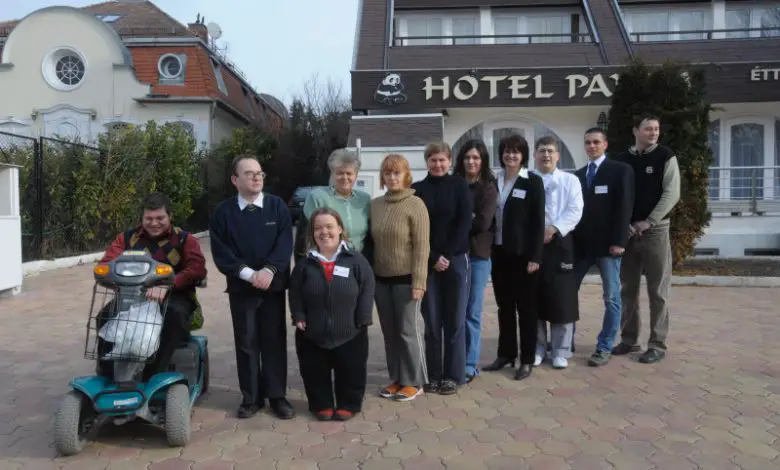
Welcome to Budapest’s Hotel Panda – a hotel run by disabled staff
Adelina Chalmers who publishes a blog called The Geek Whisperer writes about a hotel in Budapest, Hungary that is run by disabled staff.
Mentioning Central-Eastern Europe prompts in most people’s minds images from TV news reports of the 1989 revolutions that took place, or even the grizzly blocks of flats of the Communist era; yet today some of the most innovative things on the planet happen in this part of the world!…
Living in Britain, I am used to thinking most of the time we are the “know it all” experts of Europe, yet discovering companies such as Hotel Panda in Budapest (Hungary), reminds me that the world is not quite what we created it to be in our minds and there is always more to learn from any part of the globe – in fact, that’s actually one of the reasons I decided to start to this blog on cases of good practice.
I first heard of Hotel Panda when I was talking with Dacorum CVS (Community and Voluntary Sector) CEO (Chief Executive Officer), Mark Mitchell, about a Pan-European project we were putting together last year and he happened to mention this amazing hotel he heard about at one of the conferences he attended in Europe.
Hotel Panda is raising the bar in terms of business models which address social inequality and disadvantage – they decided to employ mainly disabled and now fully-abled employees are a small minority in this business, accounting for only 5% of the workforce! In fact, it is claimed they are the first hotel in the world (if not, at least in Central and Eastern Europe) to be run almost entirely by disabled staff!
I had the opportunity to interview the hotel Sales Manager, Zoltan Fancsali, who thankfully speaks fluent English (my Hungarian is rather limited… to zero!) and who is physically disabled himself, being in a wheelchair.
It all started with Mr. Bela Kocsy who, together with his family, in 2007 bought Hotel Panda in Budapest. One of his friends developed a brain tumour, causing him to lose his sight. Bela decided to help his friend get out and about, doing things, by giving him the opportunity to work a few hours in the reception of the hotel he now owned. He noticed that his friend’s self-esteem was improved by working at the hotel, doing something and interacting with people. In fact, I think this applies to all of us, as everyone wants to feel useful and valued, especially when one has such a life-changing experience…
Through his friend, he met more disabled people – all of whom possessed various skills which Bela thought he could make good use of in the hotel, so he decided to focus his staff recruitment only on disabled people! He then found out that the Hungarian government offers between 10 to 80% of a disabled person’s salary if they are employed so this also was an incentive and helped him start this off.
Don’t be hasty to think that this hotel is now mainly run on government subsidies for disabled staff, because when employing disabled staff, businesses have to make reasonable adjustments and buy-in training to prepare them accordingly.
To begin with, one of the things he stumbled on was the difficulty to find disabled people that had all of the skills he needed in order to run the hotel (mainly because the education system for disabled people was not up to par when these people were young) – so he began employing and training them so they could learn the skills he needed. Now, Hotel Panda employs people with various disabilities, from people with hearing impairments to senior staff who are wheelchair users as well as people with various physical (polio, amputations, spine injuries and so on) and mental health issues (severe depression).
How do they do it?
The hotel management take into account each person’s disability and use different communication methods that work individually for them: such as speaking slowly (so staff can lip read), or writing down instructions (if they get side-tracked, they can go back to the list) or actually physically showing them exactly what needs doing (e.g. how the tables & chairs need to be arranged in the restaurant or conference room).
The hotel is disabled accessible which means that not only staff with mobility issues but also potential clients with disabilities find the hotel particularly sensitive to their needs – disabled accessible venues are not very common in Hungary (or in other Central and Eastern European countries).
He found disabled staff to be very committed and keen to do their job (something that Andy’s Kars also found in his repair garage in Cambridgeshire), as well as having excellent interpersonal skills, which of course helps when dealing directly with guests at the hotel.
Yet, what I liked most about this hotel is that they did not stop at having the business run entirely by disabled people, but they also organise additional events and run apprenticeship placements for them.
The hotel works in partnership with NGOs covering numerous disabilities and disabled people’s needs, such as:
• social inclusion of disabled people – National Federation of Disabled Persons’ Association and Salva Vita Foundation
• hearing impairment – SINOSZ
• and physical impairments – Disabled People Rehabilitation Centre.
All of these organisations send disabled people to the hotel for 3 months apprenticeships and the hotel then issues each apprentice a certificate that they have been trained at Hotel Panda. This scheme has proved effective in finding disabled people jobs in other hotels.
But, these guys are also very keen to open the wider job market to disabled people – they organise Disability Open Days where they invite multinational companies operating in Budapest to meet local disabled people looking for employment opportunities. A few disabled people found jobs at companies such as IBM in Budapest through these sorts of events, where they would have probably never had this chance before!
They also give presentations to other companies on how they work with their disabled staff. Initially companies had many questions and were afraid of employing disabled people, but Hotel Panda organised subsequent events where government officials came and explained the legislation and the support the Hungarian Government offers to companies employing disabled people.
Needless to say, this hotel won numerous awards for business innovation both in Hungary as well as in Europe.
I would like to point out a few things that Hotel Panda do which help improve the situation for disabled people in Hungary and opening up the job market to these potential new workers which others could apply:
• They pay attention to each member of staff when they join them and are fully aware of their disability, this way they can make reasonable adjustments to help staff carry out their job.
• They work in partnership with civil society organisations and offer apprenticeships to disabled people to improve their job prospects.
• They use their position in the private sector in Budapest and organise Disability Open Days with members of the community and private sector businesses to break down barriers to employment of disabled people.
• They organise training events for employers to inform them of all the government legislation and support with regards to employing disabled staff.
• They invest in their staff and use the cash available from government for staff’s salaries to get training and put in place reasonable adjustments for them.
By Adelina Chalmers
For more information on Hotel Panda, visit their website by clicking here.
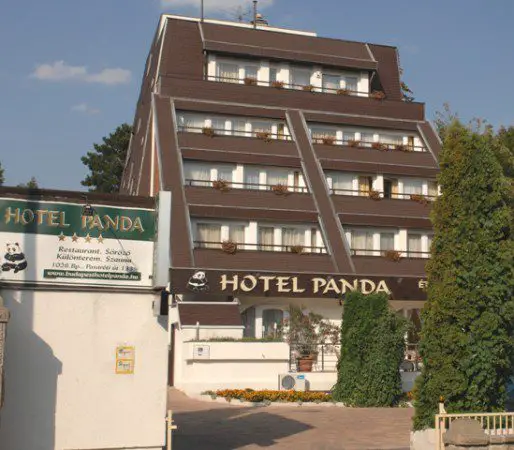
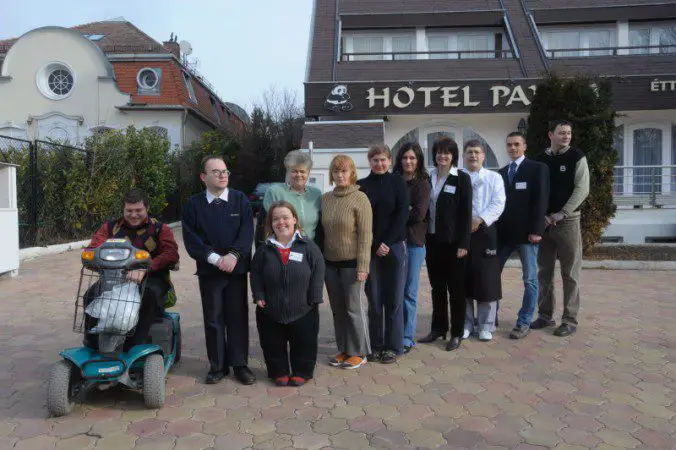
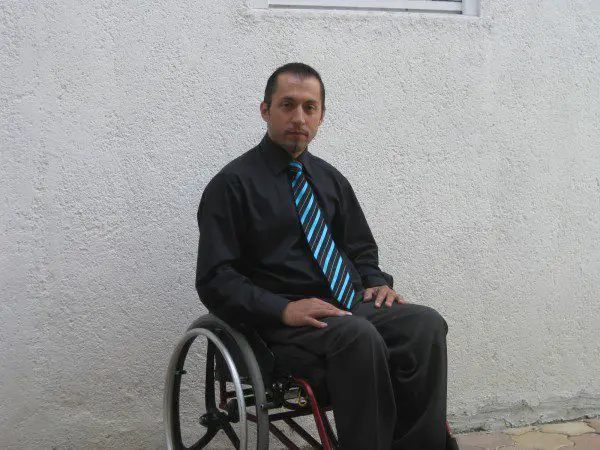
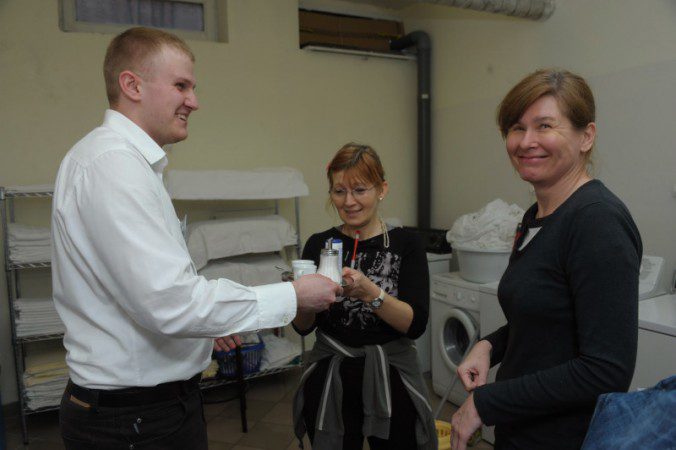
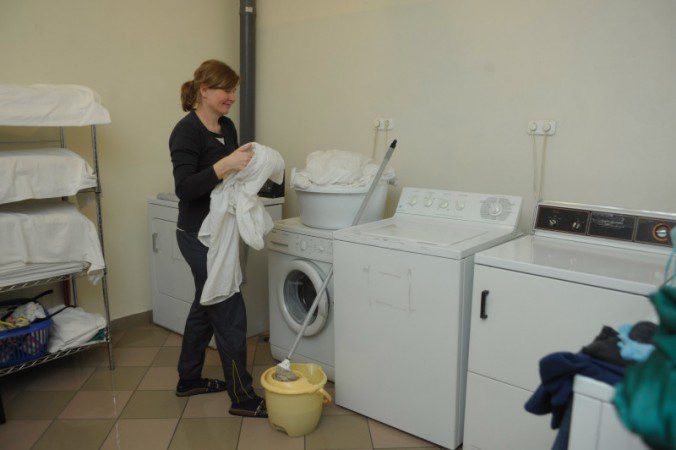
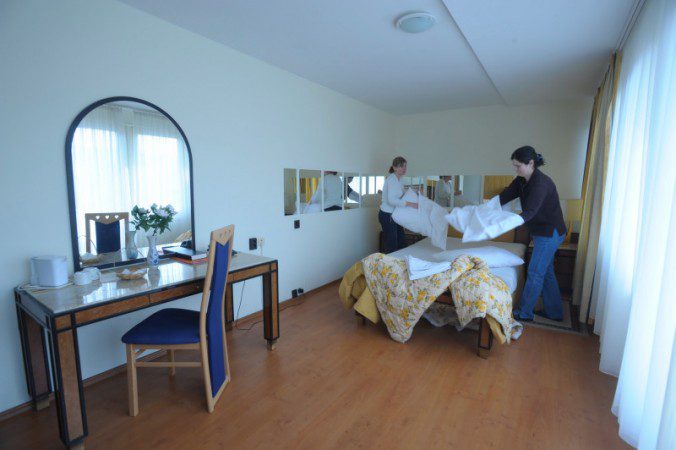
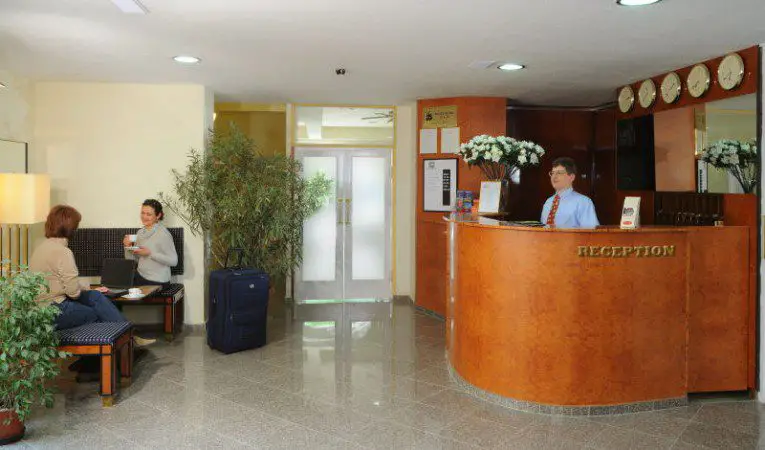
About 25 years ago in Germany-a hotel was opened Staffed all by disabled people (except the Managers). It now is a 3 star hotel and has an 80% room occupancy.